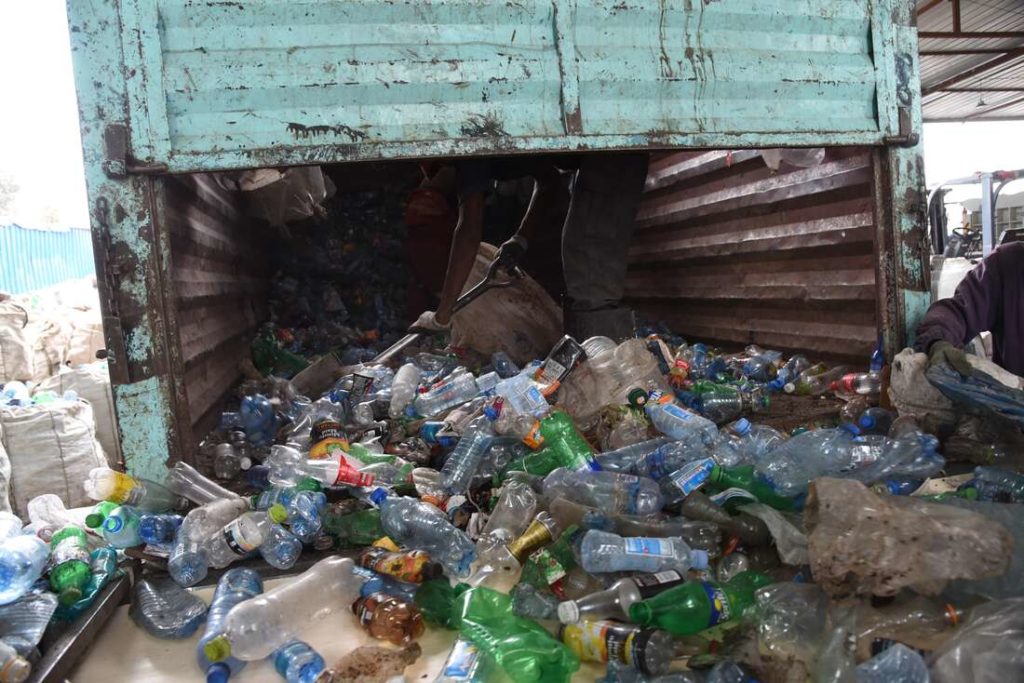Plastic bottles for recycling at a plant in Athi River. PHOTO | EVANS HABIL | NMG Every morning, Francisca Mwende and two other members of New Genesis, a community-based organisation in Mukuru, set out into the expansive settlement in search of polythene bags.
In a day, this trio collects about 120 kilos from dustbins, landfills and rivers, and delivers it to Vintz Plastics, a local recycler. This has become a source of livelihood for New Genesis, enabling them to meet their basic needs.
The recycled waste is processed into basins, jerricans, water tanks and plates.
This collection is enabled by a subsidy programme driven by the Kenya Producer Responsibility Organisation (Kepro) initiated by the Kenya Association of Manufacturers (KAM) is one of the ways in which local manufacturers are accelerating the growth of the recycling economy in Kenya.
With waste production standing at about 20,000 tonnes a day, accelerating the growth of the recycling economy in Kenya will play a key role in addressing the waste management menace in the country. Unfortunately, a substantial amount of this waste goes uncollected or is poorly disposed of due to a total lack of infrastructure, inefficiencies in existing systems, and poor disposal services.
The result of this is a significant proliferation of landfills and dumpsites as well as the burning of waste, which has negative impacts on health and air quality.
Solid waste management in Kenya is further compounded by indiscriminate littering and a lack of public awareness of sound waste management practices, such as segregation and disposal.
This lack of environmental stewardship has created a poor attitude towards waste, where it is viewed as a menace instead of an economic opportunity to be exploited.
This means we are losing out on a myriad of environmental, social and economic benefits, which will create value from waste through re-use, recycling and formalising the waste-pickers’ sector to improve livelihoods. Benefits include a clean environment, improved public health, production of energy, composting material, and gainful employment, especially for youth and women.
There are also great opportunities for innovation in effective sustainable waste management. For example, Gjenge, a social enterprise in Nairobi, is using recycled plastics to produce paving blocks and tiles as well as manhole covers.
BAT has achieved a record of Zero Waste to Landfill in its waste management programme with the recycling rate currently at more than 95 percent.Silafrica is using recycled yoghurt cups to manufacture products such as returnable crates for agricultural […]
